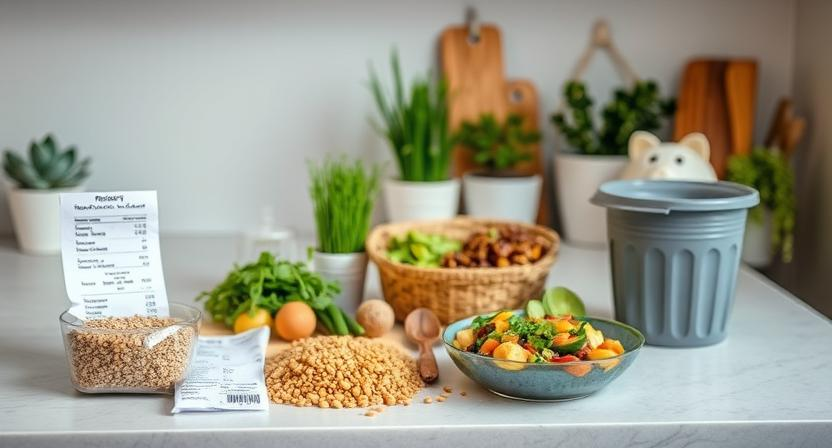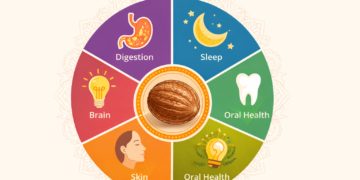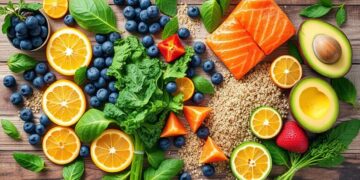Table of Contents
1. Introduction
Imagine walking into your favorite grocery store and noticing how plant-based options have taken over shelves. From almond milk to Beyond Burgers, it’s clear that the world is shifting towards a greener plate. Maybe you’ve even thought about trying it yourself but aren’t sure where to start.
The trend isn’t just a passing fad. There are solid reasons behind the growing popularity of plant-based diets. People are embracing this lifestyle for its numerous benefits, from improved health and better weight management to reduced environmental impact and cost savings. In this blog, we’ll explore these benefits in depth, bust common myths, and provide practical tips for anyone curious about transitioning to plant-based eating. Whether you’re a seasoned vegan or just plant-curious, there’s something here for everyone.
2. Understanding Plant-Based Diets
A plant-based diet is more than just cutting out meat; it’s a lifestyle focused on eating foods primarily derived from plants. This includes fruits, vegetables, grains, nuts, seeds, and legumes. While the term is often associated with veganism, plant-based diets can take various forms, allowing for flexibility and customization to suit individual preferences. Here’s a quick breakdown:
- Vegan: Excludes all animal products, including dairy and eggs.
- Vegetarian: Avoids meat but may include dairy and eggs.
- Flexitarian: Focuses on plant-based foods but occasionally includes meat or fish.
- Pescatarian: Includes fish and seafood but avoids other types of meat.
At its core, a plant-based diet emphasizes whole, minimally processed foods that are rich in nutrients and flavor. The goal is to prioritize healthful eating while reducing reliance on animal products.
3. Nutritional Benefits of a Plant-Based Diet
Plant-based diets aren’t just about cutting out meat—they’re about adding a variety of nutrient-dense foods to your plate. Here’s how these diets can boost your health:
High in Fiber
Fruits, vegetables, legumes, and whole grains are excellent sources of fiber. Fiber not only supports digestive health but also helps regulate blood sugar levels and promotes a feeling of fullness, which can aid in weight management.
Packed with Vitamins and Minerals
Plant-based diets are rich in essential vitamins and minerals, including:
- Vitamin C: Found in citrus fruits, bell peppers, and broccoli, it supports the immune system and skin health.
- Potassium: Present in bananas, potatoes, and beans, it helps regulate blood pressure.
- Magnesium: Found in nuts, seeds, and leafy greens, it supports muscle and nerve function.
Lower in Saturated Fats
Replacing animal products with plant-based foods can significantly reduce your intake of saturated fats, which are linked to heart disease. Instead, plant-based diets often include healthy fats from sources like avocados, nuts, and olive oil.
Reduced Risk of Chronic Diseases
Studies have shown that people who follow plant-based diets have a lower risk of:
- Heart Disease: Thanks to reduced cholesterol levels and improved heart health.
- Type 2 Diabetes: Due to better blood sugar regulation.
- Certain Cancers: Especially colorectal cancer, as a result of high fiber intake and reduced red meat consumption.
Better Weight Management
Because plant-based foods are generally lower in calories and higher in nutrients, they can help individuals maintain a healthy weight without feeling deprived.
With so many nutritional benefits, it’s no wonder that plant-based diets are gaining recognition as a cornerstone of healthy living.
4. Environmental Benefits of Plant-Based Diets
The benefits of plant-based diets extend far beyond personal health. By shifting our dietary habits, we can significantly reduce our impact on the environment. Here’s how:
Lower Greenhouse Gas Emissions
Animal agriculture is one of the leading contributors to greenhouse gas emissions. According to studies, producing plant-based foods generally results in fewer emissions compared to raising animals for meat and dairy. For example, growing vegetables requires less land and water while emitting far less carbon dioxide and methane.
Conservation of Water Resources
Did you know that producing a pound of beef can require up to 1,800 gallons of water? In contrast, growing plant-based foods like beans or lentils uses significantly less water. By choosing plants over meat, we can conserve precious freshwater resources.
Reduced Deforestation
The demand for pastureland and animal feed crops like soy has led to widespread deforestation, particularly in tropical regions. Shifting to plant-based diets can reduce the pressure to clear forests, helping to preserve biodiversity and combat climate change.
Protection of Marine Ecosystems
Overfishing has pushed many marine species to the brink of extinction and disrupted delicate ocean ecosystems. By reducing seafood consumption, plant-based diets can help alleviate the strain on our oceans and promote sustainable fishing practices.
Less Agricultural Pollution
Animal farming generates large amounts of waste, which can pollute waterways and soil. In contrast, plant-based agriculture tends to produce less waste and relies on fewer chemical inputs, such as fertilizers and pesticides.
Adopting a plant-based diet isn’t just a personal choice—it’s a step towards a more sustainable and eco-friendly future for everyone.
5. Economic Benefits of Plant-Based Diets
Shifting to a plant-based diet doesn’t just benefit your health and the planet; it can also positively impact your wallet. Here are some ways this lifestyle choice can save money:
Lower Grocery Bills
Plant-based staples like beans, lentils, rice, and vegetables are often more affordable than meat, fish, and dairy products. By focusing on these cost-effective ingredients, you can stretch your grocery budget further.
Reduced Healthcare Costs
A healthier diet leads to fewer medical expenses. By reducing the risk of chronic diseases such as heart disease, diabetes, and certain cancers, plant-based diets can significantly lower healthcare costs over time.
Less Food Waste
Plant-based diets often emphasize fresh, whole foods that can be portioned and prepared efficiently. This focus can help reduce food waste, which saves money and supports sustainability.
Economic Opportunities
The growing demand for plant-based products has led to a surge in innovation and entrepreneurship. From plant-based meat alternatives to dairy-free cheeses, this booming market provides economic opportunities for businesses and individuals alike.
Savings on Eating Out
Many plant-based meals, even at restaurants, are cheaper than meat-based dishes. Opting for plant-based options when dining out can lead to significant savings over time.
Transitioning to a plant-based diet is not only an investment in personal and environmental health but also a financially savvy choice that can pay off in the long run.

6. Practical Tips for Transitioning to a Plant-Based Diet
Making the switch to a plant-based diet can feel overwhelming at first, but it doesn’t have to be. Small, intentional changes can lead to lasting habits. Here are some practical tips to help you transition:
Start Slow and Set Realistic Goals
If going fully plant-based overnight seems daunting, take it step by step. You might start by dedicating one day a week to eating plant-based meals (like Meatless Mondays) and gradually increasing the frequency.
- Tip: Begin with dishes you already enjoy that can easily be made plant-based, such as pasta with marinara sauce or vegetable stir-fry.
Educate Yourself on Plant-Based Nutrition
Understanding the nutrients your body needs will help you make balanced meals and avoid deficiencies. Focus on these key areas:
- Protein: Incorporate beans, lentils, tofu, tempeh, quinoa, and nuts.
- Ironch, lentils, and fortified cereals; pair with vitamin C-rich foods for better absorption.
- Vitamin B12: Consider fortified plant-based products or supplements, as this vitamin is primarily found in animal products.
Experiment with Plant-Based Alternatives
Thanks to the growing popularity of plant-based diets, there’s no shortage of delicious alternatives:
- Try oat, almond, or soy milk instead of cow’s milk.
- Explore plant-based meat substitutes like tofu, tempeh, or products from brands like Beyond Meat.
- Use nutritional yeast for a cheesy flavor in pasta or sauces.
Stock Up on Staples
Keep your kitchen stocked with plant-based essentials to make meal prep easier. Must-have staples include:
- Whole grains: Brown rice, quinoa, oats
- Legumes: Black beans, chickpeas, lentils
- Nuts and seeds: Almonds, chia seeds, flaxseeds
- Fresh and frozen fruits and vegetables
Learn to Cook New Recipes
Cooking plant-based meals at home gives you control over ingredients and ensures they’re flavorful and satisfying. Experiment with dishes from different cuisines to discover new favorites, such as:
- Indian chickpea curry
- Mediterranean hummus wraps
- Mexican-inspired bean and avocado tacos
Focus on Whole Foods
While plant-based processed foods can be convenient, they shouldn’t make up the bulk of your diet. Prioritize whole, minimally processed foods for optimal health and nutrition.
Stay Flexible and Forgive Slip-Ups
Transitioning to a plant-based diet is a journey, not a race. If you have a non-plant-based meal or ingredient, don’t be hard on yourself. Focus on progress, not perfection.
Seek Support
Join online forums, social media groups, or local communities dedicated to plant-based living. Sharing experiences, tips, and recipes with others can keep you motivated and inspired.

7. Addressing Common Myths About Plant-Based Diets
As plant-based diets gain traction, a lot of misconceptions surround this lifestyle choice. Let’s bust some of the most common myths and provide clarity:
Myth 1: Plant-Based Diets Are Nutritionally Inadequate
One of the biggest concerns people have about plant-based diets is whether they provide enough essential nutrients, particularly protein. The truth is, a well-planned plant-based diet can meet all your nutritional needs.
- Reality: Plant-based sources like legumes, tofu, quinoa, and nuts are packed with protein. Pairing different plant proteins ensures you get all essential amino acids.
- Expert Tip: Focus on variety and include fortified foods or supplements for nutrients like B12 and vitamin D if needed.
Myth 2: It’s Too Expensive to Eat Plant-Based
Some believe that a plant-based diet is only for those who can afford specialty products like almond milk, vegan cheeses, and plant-based meats.
- Reality: While these products can be pricey, plant-based staples like beans, lentils, rice, and seasonal vegetables are highly affordable and nutritious.
- Expert Tip: Plan your meals around whole, minimally processed foods to keep costs down.
Myth 3: Plant-Based Diets Lack Flavor
A common misconception is that a plant-based diet is bland and boring compared to meals that include meat or dairy.
- Reality: Plant-based cooking celebrates flavors, spices, and herbs. International cuisines—such as Indian, Thai, and Mediterranean—offer countless delicious plant-based options.
- Expert Tip: Experiment with marinades, sauces, and spice blends to enhance the taste of plant-based dishes.
Myth 4: It’s Hard to Get Full on a Plant-Based Diet
Some people worry they’ll always feel hungry without the “heaviness” of meat.
- Reality: Fiber-rich foods like beans, lentils, whole grains, and vegetables promote satiety and keep you feeling full longer.
- Expert Tip: Incorporate healthy fats like avocados, nuts, and seeds into your meals for additional satiety.
Myth 5: Plant-Based Diets Are Only for Vegans
There’s a misconception that you must give up all animal products to enjoy the benefits of plant-based eating.
- Reality: You don’t have to be 100% vegan to reap the benefits. Flexitarian and semi-vegetarian diets, which include occasional animal products, are still largely plant-based and can provide similar advantages.
- Expert Tip: Transition at your own pace and define what plant-based eating means for you.
By debunking these myths, we hope to make the idea of transitioning to a plant-based diet more accessible and less intimidating.
8. Conclusion
In conclusion, plant-based diets offer health, environmental, and economic benefits. They reduce chronic disease risks, lower emissions, and save on grocery and health costs. Transitioning can begin with small steps, debunking myths that plant-based eating isn’t complete or tasty. It’s accessible to all, providing a journey of discovery and positive impact. Let’s make our meals a statement of care for our bodies and our planet.










Comments 1